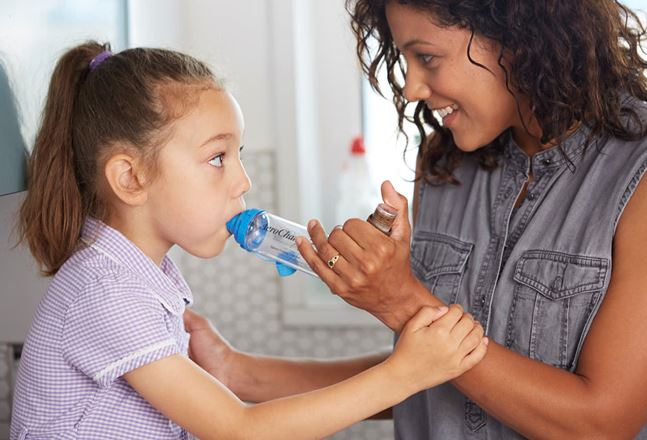Asthma

What is asthma?
Asthma is an inflammatory disease that affects the lungs causing the airways to narrow, making it difficult to breathe. Asthma can be distressing for you and your child. It may cause breathlessness, wheezing, coughing, and chest tightness.
Asthma is a common condition affecting 1 in 11 children and young people, with every school classroom containing 1 or 2 children with Asthma. If not treated well, Asthma has a significant impact on a child’s quality of life and their ability to enjoy activities and education. It also puts them at risk from episodes of breathing difficulty, known as Asthma attacks.
Sadly, some children and young people with asthma will die from these attacks every year. These episodes are preventable with good asthma care delivered in partnership with the child or young person through empowering them to manage their asthma.
We want to help children and young people with asthma, and their families and carers, to understand how to manage their condition so they can live full lives, without missing out.
There are four simple steps, or as we call them asks, which can help children and young people to manage their asthma:
1. Get an asthma action plan in place
A written asthma action plan drawn up between a healthcare professional and patient means you are four times less likely to have to go to hospital for your asthma.
2. Understand how to use inhalers correctly
Less than three-quarters of children and young people know how to use their inhaler. Poor inhaler technique means patients don’t get the full benefit of their asthma medication.
-
All used inhalers should be returned to a pharmacy to be disposed of safely.
-
Inhalers should not be put in waste bins. Landfill disposal is harmful to the environment both in material waste and in greenhouse gas emissions as the residual gas from canisters is released to the atmosphere.
3. Schedule an asthma review – every year and after every attack
An asthma review by an appropriately trained clinician after every attack helps to work out what went wrong so you can adjust your asthma management plan as needed.
4. Consider air pollution and its impact on lung health
Indoor and outdoor air pollution can trigger your asthma. Thinking about air pollution as part of your asthma management can help reduce the risk of asthma attacks.
Defra UK AIR website: this website allows you to enter your postcode and it will then provide an air pollution forecast for the next 5 days. It also links you to health advice and any pollution alerts that have been issued.
Resources and asthma information
By raising awareness, we can help even more children and young people to ask about asthma and get the right care. If you have asthma, or you are the parent of a child or young person with asthma, speak to your GP or GP practice nurse to discuss getting an asthma management plan in place.
Children and young people with asthma can find a range of resources below to help you learn more about the condition:
Improving the Asthma care is an integral part of the transformation plan, and a work programme has been designed to improve Asthma care in our region in line with the standards set out in the NHS England and Improvement national bundle of care for children and young people with Asthma.
There are 5 main components of the Asthma national bundle of care:
A. Environmental Impacts
B. Accurate and Early Diagnosis
C. Effective Preventative Medicine
D. Managing Exacerbations
E. Severe Asthma



